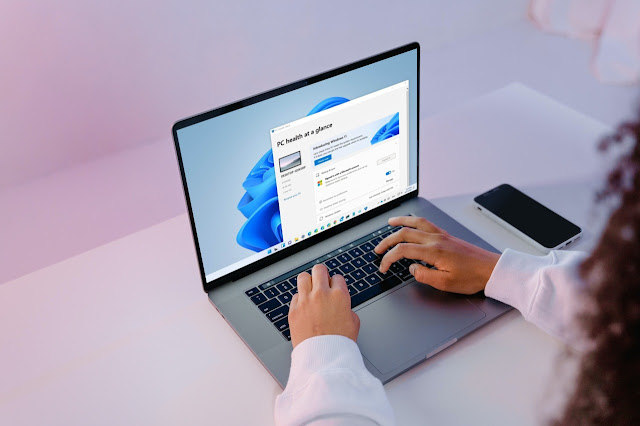As of my last knowledge update in September 2021, I can provide you with the general steps to check if your PC can run Windows 11 based on the system requirements that were known at that time. Keep in mind that there might have been changes or updates to the system requirements since then, so I recommend verifying the latest information from Microsoft's official sources.
 |
| How to Check if Your PC Can Run Windows 11 |
To check if your PC can run Windows 11, follow these steps:
Check System Requirements:
Visit the official Windows 11 system requirements page on the Microsoft website to ensure that your PC meets the minimum hardware requirements. These requirements include details about the processor, RAM, storage, and other components your PC needs to have to run Windows 11.
Windows 11 Minimum Hardware Requirements
Here are the minimum requirements as per Microsoft for a PC to run Windows 11.
Processor- 1 GHz or faster with two or more cores on a compatible 64-bit processor or System on a Chip (SoC)
- Memory – 4GB
- Storage – 64 GB or larger storage device
- System Firmware – UEFI, Secure Boot capable
- TPM – Trusted Platform Module (TPM) version 2.0
- Graphics Card – DirectX 12 compatible graphics / WDDM 2.x
- Display – 9″ with HD Resolution (720p)
Use the PC Health Check Tool (if available):
Microsoft released a tool called "PC Health Check" that allows you to quickly assess whether your PC meets the requirements for Windows 11. You can download and run this tool from the Microsoft website.
Check TPM Version and Secure Boot:
Windows 11 requires a compatible Trusted Platform Module (TPM) version (1.2 or higher) and Secure Boot capabilities. You might need to access your BIOS/UEFI settings to ensure that both TPM and Secure Boot are enabled.
Check Compatibility in Windows Update:
Microsoft might also provide compatibility information through Windows Update. Check for updates on your Windows 10 system, and you might find information about your PC's ability to run Windows 11.
Look for Driver Updates:
Ensure that your hardware drivers are up to date. Outdated or incompatible drivers can lead to compatibility issues with Windows 11.
Check for BIOS/UEFI Updates:
Manufacturers might release BIOS/UEFI updates that add compatibility for Windows 11. Visit your PC manufacturer's website to see if there are any updates available for your specific model.
Alternative Methods:
In addition to the official Microsoft tools, there might be third-party tools available that can analyze your system's compatibility with Windows 11. However, be cautious when using third-party tools and make sure they come from reputable sources.
Remember that system requirements and compatibility information might have changed since my last update. Always refer to the most recent information from Microsoft to ensure accurate guidance regarding whether your PC can run Windows 11.
